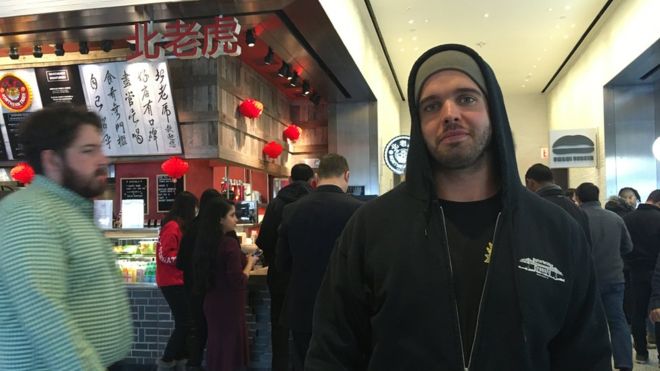
During a recent lunch hour in New York, a sea of office workers filled the Hudson Eats food court, where staff prepared pizza, barbecue and chopped salad orders at incredible speed.
Many people had ordered ahead by app, while credit cards dominated the other purchases. And at least two establishments refused cash altogether – as Nicholas Duggan discovered to his dismay when he pulled out dollars to pay for his burrito.
“I was very taken aback,” said the 29-year-old construction worker. “Luckily I had my card on me.”
Once dominant, cash has been steadily overtaken by credit cards and a growing number of electronic and mobile options. Some countries, including the US, are even toying with plans for digital currencies.
However, a growing number of places in the US are pushing back.
In January, New York City passed a law requiring businesses to accept dollar bills. The measure followed similar steps in Philadelphia, San Francisco, and New Jersey.
Several other cities, including Washington DC, are considering similar moves and Congress recently heard comments about a country-wide proposal.
Americans used cash for an estimated 26% of transactions last year, down from 40% in 2012, according to surveys by the US central bank.
The decline is not unique to the US. In the UK, the proportion of cash payments has dropped by more than half since 2008, sinking from 60% to 28% in 2018. In Sweden, cash accounts for just 6% of transactions, down from more than 35% in 2012.
The move away from cash has been a bonanza for credit card companies and newer firms such as Square, which handle electronic transactions. Consulting firm McKinsey expects revenue in the global payments industry to grow 6% annually over the next five years, to more than $2.7 trillion.
But about 6.5% of American households do not even have bank accounts – let alone “digital wallets”, according to the most recent US government estimates. That compares to less than 2% in the UK, and less than 1% in Sweden.
Studies show low income households in the US are much more likely to pay by cash.

